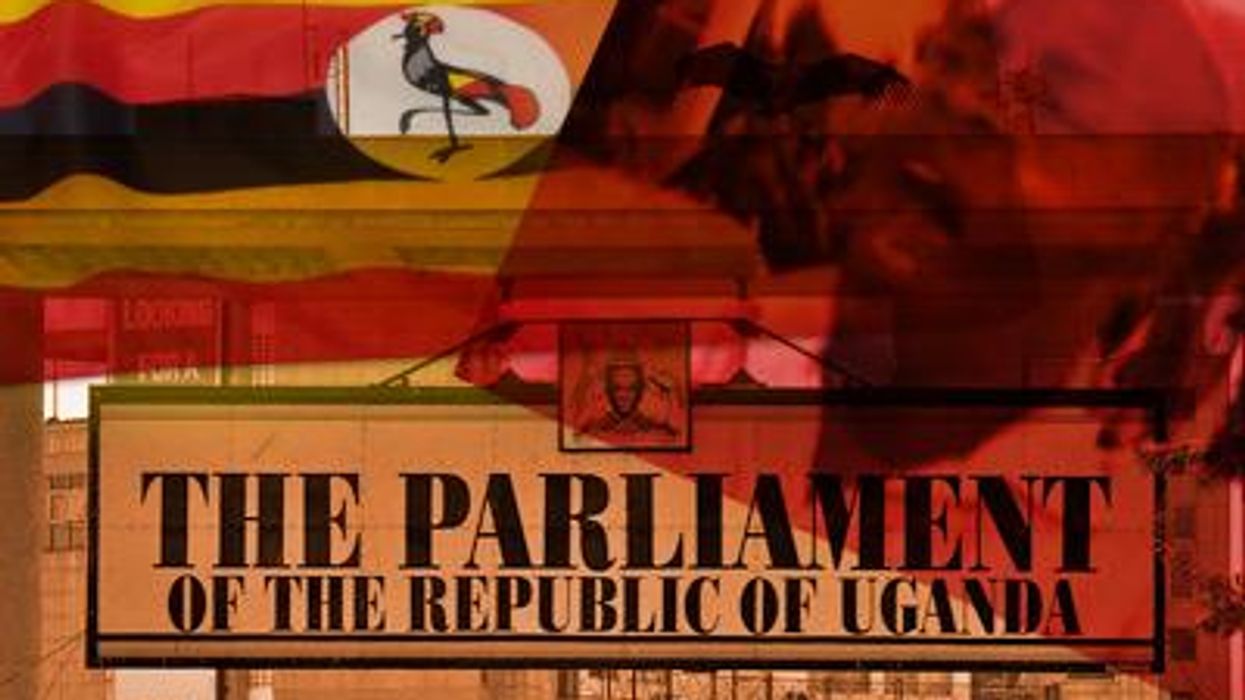Embattled LGBT activists in Uganda are working together to help each other stay safe, but they remain defiant in the face a newly passed law that proposes life imprisonment for gay, lesbian, bisexual, transgender, or intersex Ugandans.
The Ugandan parliament passed the Anti-Homosexuality Bill on Friday morning, without any public announcement about the bill's consideration, without parliamentary debate, and possibly without the presence of enough members to establish quorum and legally move forward with the legislation, according to a statement from the prime minister.
"It was very, very deliberate," says LGBT activist Clare Byarugaba, of the surreptitious and unannounced passage of the bill. "Because they knew the kind of pressure it would bring."
"The speaker is doing this as a political move, and not even adhering to the rules that she herself put in place earlier this year," continues Byarugaba, the co-coordinator of Uganda's Civil Society Coalition on Human Rights and Constitutional Law.
Speaker of Parliament Rebecca Kadaga was recently named the chairperson of the Commonwealth Women Parliamentarians, an international parliamentary association that focuses on "good governance, democracy, elections and human rights," according to Uganda's daily paper New Vision. Late last year, Kadaga attracted international attention and backlash after she told Canadian reporters that her parliament would pass the Anti-Homosexuality Bill as a "Christmas gift" to Ugandans.
Byarugaba, the LGBTI activist, noted that in rushing the Anti-Homosexuality Bill through parliament, Kadaga ignored procedural rules she put in place -- including a recently enacted provision that every bill which passes through parliament must pass a "Human Rights Checklist" that ensures the proposed legislation adheres to the Ugandan constitution and international human rights standards.
The country's most prominent LGBT organization, Sexual Minorities Uganda, condemned the bill's passage, and agreed with Byarugaba's assessment that the bill was pushed through parliament in a deceptive fashion.
"SMUG condemns in the strongest terms the haphazard manner in which Members of Parliament passed [the bill] with little if any regard to procedure and to whether it complies with the 1995 Constitution as the Supreme law of Uganda," reads a statement issued Friday from the activist organization.
President Yoweri Museveni has yet to sign the bill -- and sources on the ground in Uganda indicate that he might veto the legislation in response to international pressure. But even if Museveni vetoes the bill, Parliament can override that measure with another vote; and given the strong support for the law among Ugandan members of parliament, that seems the likely outcome, according to Byarugaba.
Although the bill is not yet law, it's already wreaked havoc and fear upon LGBT people living in Uganda. Byarugaba reports that a transgender woman named Beyonce was arrested Friday for walking down the street, and is currently still in jail because her allies had yet to secure her bond.
But despite the bigotry, Byarugaba and her fellow activists remain determined to overcome -- and are counting on international outrage to help sound the alarm.
"Right now, it is Uganda against homosexuals," says Byarugaba. "And the biggest solidarity we have is from people who respect and support the rights of LGBTI persons all over the world... International attention on Uganda is the only thing that will save us from the backlash that is going to continue to happen against the community. So we need that now -- more than ever."
As for the activists themselves, they are resilient.
"I feel like we have to stay and fight because there's so much work that needs to be done," says Byarugaba. "As activists, we can't just abandon the community. We already feel like we failed them by not anticipating Parliament's actions, so we can't really run away at this point. We have to stay and figure out how to move forward. And we haven't lost hope."





































































Charlie Kirk DID say stoning gay people was the 'perfect law' — and these other heinous quotes